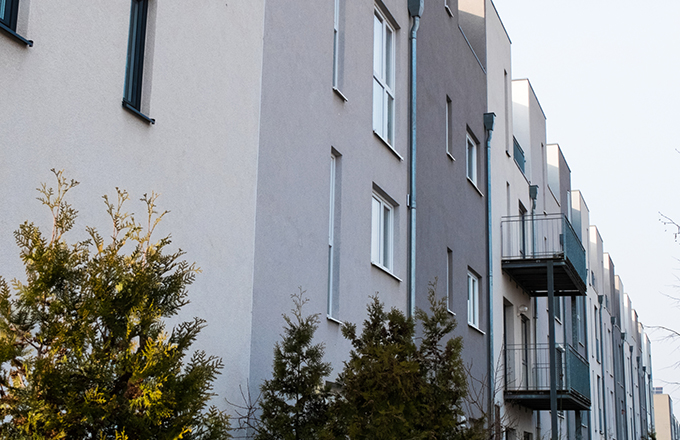Chicago Residential Landlord and Tenant Ordinance provides explicit self-help remedies
Your landlord has the responsibility of maintaining the building in compliance with building, health and safety codes.
Read more articles on nationalevictions.com our Blog is State Specific with content for Landlords and Tenants
 The Chicago Residential Landlord and Tenant Ordinance provides explicit self-help remedies that tenants should use when they discover defective conditions in their apartments. It is essential to contact an attorney to begin using these remedies, but because there exists the possibility of legal action by the landlord, tenants should document and keep records of their activities.
The Chicago Residential Landlord and Tenant Ordinance provides explicit self-help remedies that tenants should use when they discover defective conditions in their apartments. It is essential to contact an attorney to begin using these remedies, but because there exists the possibility of legal action by the landlord, tenants should document and keep records of their activities.
These remedies are based on a theory similar to those we rely upon when we purchase goods at a store. For example, if you buy a stereo and then discover that it has a defect, you can return it to the store to get a replacement, have it repaired, or obtain a refund. The law implies a guarantee when we purchase goods that allows us a remedy if the goods are defective or not fit for the purpose they were intended.
A similar guarantee is implied in every residential lease agreement. In legal terms, this guarantee is called the “implied warranty of habitability.” This warranty means that your landlord guarantees that your apartment meets most of the standards set out in Chicago’s Building Code and is fit for living in. The Illinois Supreme Court has defined “fit for living in” to be an apartment that is safe and sanitary. Minor violations of the Building Code or cosmetic defects must be substantial. But like the example of the defective stereo, if your apartment does not substantially meet the standards of the Building Code, you are not receiving full value for the rent you are paying, and you may be entitled to repairs or a reduction in rent.
Under the Chicago Residential Landlord and Tenant Ordinance, the landlord has the responsibility of maintaining his building in compliance with the Municipal Code and making all repairs promptly. The following is a list of some of the provisions with which the landlord must comply:
- a. Appliances: Must be maintained and repaired as necessary if supplied by the landlord.
- b. Basements and Cellars: Must be kept in a safe and sanitary condition including the removal of excess materials that create a fire hazard and making sure there are no leaks.
- c. Elevators: Must be maintained in buildings ten stories or higher.
- d. Exits: Must provide a safe and unobstructed means of escape from every apartment to the ground level.
- e. Exterminating: Building must be kept free of rats and reasonably free of insects.
- f. Exterior: Roof must be kept water-tight.
- g. Fire Extinguisher: If the building is greater than three stories, there must be a fire extinguisher on each floor.
- h. Garbage: Landlord must supply and maintain trash facilities.
- i. Heat: Must provide heat to all apartments from September 15 until June 1. The following average temperatures must be maintained throughout the entire apartment: 68 degrees from 7:30 a.m. to 10:30 p.m. and 63 degrees from 10:30 p.m. to 7:30 a.m.
- j. Hot Water: Sinks, bathtubs and showers must be provided with 120-degree water from 6:00 a.m. to 10:30 p.m.
- k. Interior: Walls ceilings and floors must be kept in sound condition. Floors must be free of rotting floorboards. Walls and ceilings must be free of loose paint or plaster.
- l. Lighting of halls: Halls and stairways must have adequate lighting at all times.
- m. Plumbing and Electrical: Must be maintained in good working order at all times. Switchboards and circuit breakers must be accessible to the tenant.
- n. Poisonous Paint: Must be free of all lead-based paint.
- o. Public areas: Landlord must keep all shared areas of building safe, clean and sanitary.
- p. Screens; Must be provided to all apartments on ground floor and floors 1-4 from April 15 to November 15.
- q. Security Devices for Apartment: Landlord must supply and maintain a dead bolt lock and a viewing device on each door to the apartment. Windows within 20 feet of ground level or 10 feet above an adjacent roof, exterior stairway, fire escape, ramp or porch must have ventilation locks.
- r. Building Security: Every building entrance must be secured by a door with a dead bolt lock.
- s. Smoke Detectors: Must have at least one smoke detector per apartment and one at the top of each interior stairwell.
- t. Stagnant Water: All yards, courts, passageways and other portions of the building lot must be kept free of stagnant water.
- u. Stairways and Porches: Must be kept in safe condition and sound repair. This includes the railings of porches and stairs.
- v. Water: Hot and cold running water must be maintained to sinks, lavatories, baths and showers.
- w. Water Fixtures: Landlord must provide a flush toilet, lavatory basin, bathtub or shower, and kitchen sink.
- x. Windows: Must be kept in good condition, fit well, open easily and be tight.
If you discover defective conditions in your apartment, first call your landlord to see if s/he will repair the defects. If the landlord does not respond satisfactorily, you should consider one of the remedies that follow. Remember, proof of notice of the defects to your landlord and using the remedies correctly if the landlord fails to repair are very important. If the landlord is uncooperative or not responsive and the defects appear to be serious or substantial, you should also consider calling the City Department of Buildings to arrange an inspection. The number to call is (312) 744-5000.
Repair and Deduct
If your apartment needs only minor or inexpensive repairs, “repair and deduct” is an effective way to have them completed. The repair and deduct remedy allows you to have the repairs done and then deduct the cost of the repairs form the rent payment. As always, there are steps that you must follow closely to avoid later problems. The Ordinance sets these out as follows:
- Make a list of the necessary repairs. Be as detailed as possible. This is your chance to tell your landlord what you want repaired.
- Send a copy of the list to your landlord along with a letter that states that you will exercise your legal right to pay for the repairs and deduct that amount from the next rent payment if the repairs are not completed within 14 days of receipt of the letter. Repair and deduct cannot begin until the 15th day after the landlord receives the demand letter. There is an example of this kind of letter in Chapter 7.
- Send the letter by certified or registered mail, return receipt requested, or hand deliver it to your landlord. If you give the letter to your landlord personally, have a witness go with you to be sure of the day your landlord received the letter. Be sure to keep a copy of the letter.
- Do not exceed $500 or one-half of the monthly rent for the repairs, whichever is greater. If you pay less than $500 in monthly rent, you cannot “repair and deduct” in excess of rent you pay each month.
- Submit a paid bill to your landlord from an appropriate tradesman or supplier for the cost of the repairs. The costs must not exceed what is reasonable for such services. Remember to keep a copy of all bills and receipts.
Withholding Rent
If your landlord fails to maintain the apartment and common areas in the manner defined by the Building Code, you may reduce your rent until your landlord fixes the problem if you follow the steps listed below carefully. Failure to do so could allow your landlord to successfully evict you for nonpayment of rent.
- Make a detailed list of the repairs necessary in each room of the apartment and common areas. If possible, take pictures of the defective conditions and have witnesses inspect the conditions.
- Send a copy of this list to the landlord along with a letter that states that you intend to withhold a portion of your rent if the landlord does not make the necessary repairs within 14 days of receipt of the letter. Rent withholding cannot begin until the 15th day after the landlord receives the demand letter. A sample letter can be found in Chapter 7. The letter may state the amount you intend to withhold and should be based on the reduced value of the apartment in its defective condition.
- Send the letter by certified or registered mail, return receipt requested, or hand deliver it to the landlord with a witness to be sure of the day your landlord received the letter. Be sure to keep a copy of the letter.
- Be sure you are conservative in the amount of rent you withhold! The amount is based on the reduced value of your apartment, depending on the problems in your apartment and their severity. You could be evicted if you withhold more than what the court finds to be justifiable. (if you are living there, the courts will presume that the apartment has some value.) Keep in mind that you always have the right to sue the landlord for any additional amount overpaid and not recovered through rent withholding.
- Hold on to any money withheld. Although not required by law, you may want to put the withheld rent in a special bank account called an “escrow.” If the judge finds that you have withheld too much, the money is available to you for back rent payment and prevents an eviction. These funds can also be useful in negotiating repairs.
Tags: Eviction Information, Illinois Eviction Articles, Property Maintenance, Tenant Information















